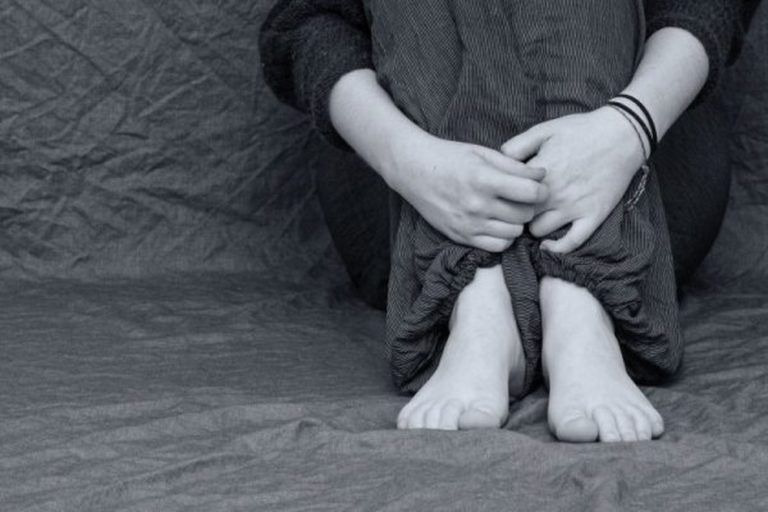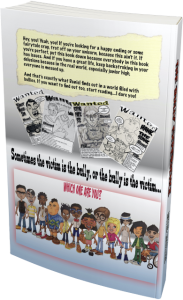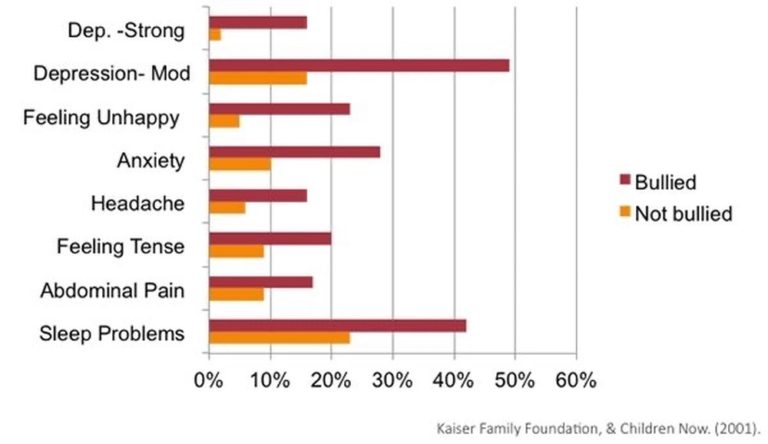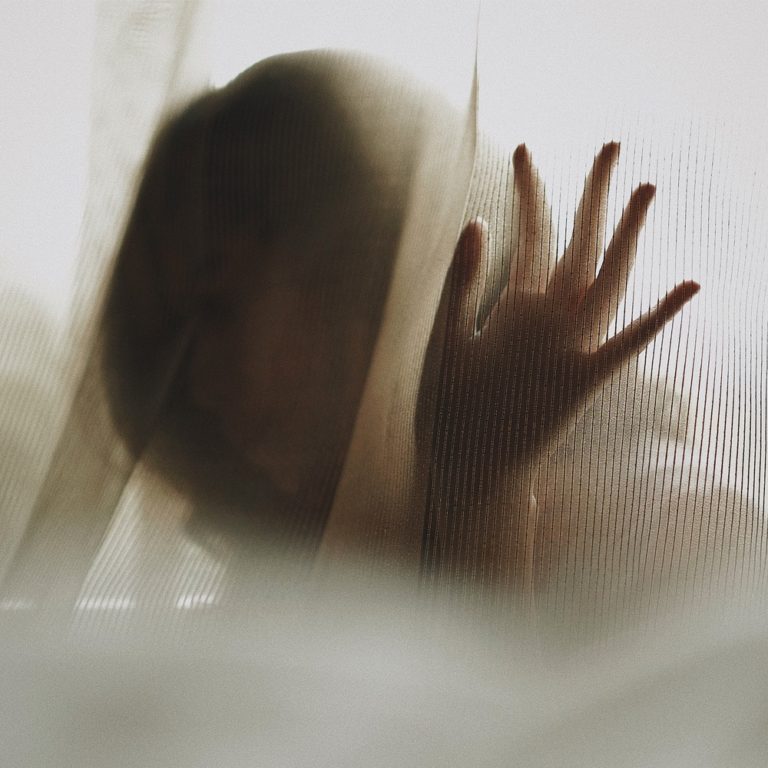How Does Bullying Change A Person And Their Health?


By Antoine G Larosiliere
If you’ve ever had a child that was bullied, one of the concerns that automatically pops up inside our head is how does bullying change a person?
As parents, being afraid for our children is what we do. Afraid of how any traumatic experience can have lasting effects on them. When my son began getting bullied, I remembered the traumatic effects bullying had on me and wondered how does bullying change a person? If you have a child that’s being bullied and you’re wondering the same thing, this article will help you. How does bullying change a person? Bullying changes a person physically through frequent headaches, sleeping disorders, somatization, and toxic stress that can lead to heart disease and diabetes. It changes a person emotionally through depression, anxiety disorders, and feelings of insecurity, isolation, shame, ager and self doubt. It changes us socially by not trusting others, being shy, closed off, withdrawn, picky, argumentative, constantly over-reacting; and you could even suffer from agoraphobia or loneliness. It also changes you mentally by altering how you see the world. You develop a pessimistic point of view, have suicidal thoughts, loose faith, worry too much and are consumed with doubt.
“the trauma stemming from chronic bullying can affect the structure of the brain.”
Changes you physically
I’M not sure what the exact saying is, but I think it goes something like, “destroy the mind and the body will follow.” Who ever said this, probably wasn’t referring to bullying and its impact but it does fit our current context. Have you ever been so stressed, your head started to hurt? What about when you’re afraid, or your anticipation of something makes your stomach turn? In a study by the MRI, the data collected showed “the trauma stemming from chronic bullying can affect the structure of the brain.” Another research found that “children who were bullied experienced negative physical health compared to non-involved peers”(Bogart and Colleagues 2014). Some of these physical health changes are…
- Frequent headaches,
- Sleep disturbances,
- Somatization (heart palpitations, tearing up ect..)
- Toxic stress from bullying can lead to developmental delays, heart disease and diabetes in adulthood (Harvard University).
Changes how you see the world
When we would talk, he would say things like, “nothing is going to get better, that’s how life is.” Or, “what’s the point in planning, things are always falling apart.” Words like that are usually evidence from scars left from abuse. Often this abuse is in the form of bullying. Bullying can change how you view the world around you, your thought processes in different situations. We are shaped by these negative experiences, and often become someone that perpetuates more negative experiences. Some of the ways bullying can shape our outlook is by…
- Having a very pessimistic point of view
- Not believing their life could improve
- Having suicidal thoughts
- Worrying too much
- Being consumed with doubt
- Thinking the world is against you
- Losing your faith
“As much as 30 percent of the depression that occurs in early adulthood could be attributed to bullying during teenage years.”
Changes you emotionally
The emotional well being of an individual is crucial to their overall well being. It’s extremely difficult to meet the educational or social needs of an individual if those emotional needs aren’t met. Every form of abuse can cause trauma, and bullying has specifically been linked to cause depression and emotional trauma. Authors of a 2015 paper in the BMJ suggests “as much as 30 percent of the depression that occurs in early adulthood could be attributed to bullying during teenage years.”
- They may suffer from depression and anxiety disorders
- Being a target of bullying, activates the stress system
- Feelings of insecurity
- Feel unaccepted
- Feeling isolated
- Feelings of shame
- Feelings of anger
- Self doubt
- Lying to skip school
Changes you socially
“We had to force him to come out with us, when he eventually did, we would find him off in the corner somewhere by himself.” It is a basic human need to interact with other human beings according to Maslow. More importantly it nurtures and stabilizes our psychological and emotional disposition. When have you ever noticed someone of psychological and emotional health to have no friends? Better yet, someone who thrives socially but is emotionally and psychologically inadequate? That’s the point; they usually go hand in hand. One cannot exist without the other. At the same time being healthy doesn’t imply perfection. We all have some more work to do, to be the better version of ourselves, working on our social health will help. When bullying has changed you socially…
- You don’t trust people
- You’re shy and closed off to people
- You’re terrified of rejection and withdrawn
- You avoid large groups of people
- You are very selective with friendships
- You become more argumentative at home
- You overreact to innocent comments made by family members
- You’re very picky with romantic relationships
- You’re less likely to have long-term relationships
- You suffer from agoraphobia
Many of us at some point will have to deal with some form of bullying. We can’t avoid it, it is indeed a sickness of life. There’s going to be an individual, no matter what you do, they’ll have a problem with you. It usually has nothing to do with you, but everything to do with some unresolved issues they’re still dealing with. But nonetheless, bullying will change you. Some of us for the better, many of us for the worse. But through love we can heal one another. I hope this has been helpful. Also visit my YouTube channel for more insight to these topics.
The Bully Experience "Daniel's Story"

Sign up for our newsletter and Read the novel For Free!
Stay updated. Sign up for our newsletter, and get the first two chapters of The Bully Experience Daniel’s Story absolutely free.

